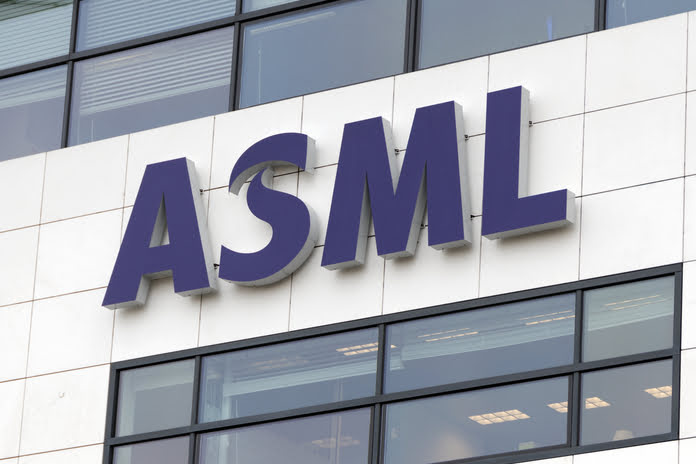The semiconductor industry, entering 2024 with renewed optimism, sees a turning point in the $600 billion market, as global chip sales rebounded to $48 billion in November, marking the first annual and quarterly increase in over a year. The Semiconductor Industry Association (SIA) anticipates a robust upswing in 2024, projecting a 13% rise in global revenues to reach $588 billion. Amidst this growth, a select few chip companies, including Nvidia (NASDAQ:NVDA), Taiwan Semiconductor Manufacturing (NYSE:TSM), and Super Micro Computer (NASDAQ:SMCI), have experienced disproportionate gains due to soaring demand for AI chips.
However, there is one company standing out in this AI chip boom—ASML Holdings (NASDAQ:ASML). As Europe’s most valuable technology firm, ASML holds a near-monopoly as the sole producer of equipment required for manufacturing advanced semiconductors. The company’s stock recently reached a record high, reflecting a significant increase in orders, even amidst a year of subdued semiconductor manufacturing capacity utilization.
ASML’s unique market position is evident in its remarkable financial performance. With orders surging to a record $9.98 billion in the fourth quarter, driven by demand for its cutting-edge extreme ultraviolet (EUV) lithography machines, ASML stands out as a key player in the AI chip landscape. Notable clients such as Intel, Samsung Electronics, and Taiwan Semiconductor contributed to this surge in orders.
CEO Peter Wennick emphasized the pivotal role of artificial intelligence in driving business growth, particularly highlighting the demand for high-performance memory chips crucial for unlocking the full potential of AI. Wennick also emphasized the urgency for chipmakers to secure ASML’s EUV lithography systems, given the extended lead time for manufacturing and delivering these systems.
Investors are taking note of ASML’s dominant position, with the company’s stock rallying to record highs. ASML’s role at the forefront of the artificial intelligence boom is evident in its high bandwidth memory business, driven by the escalating demand for AI infrastructure. While the stock may seem expensive on a one-year view, trading at 40 times next year’s earnings, the ratio decreases to historical levels when considering 2025 earnings, a year anticipated to bring “very significant” growth.
ASML’s strategic bets on a renewed chip boom in 2025 seem well-founded, as evidenced by unexpectedly large fourth-quarter orders that underpin approximately half of the projected 2025 revenues. The company’s focus on its newest EUV machines, with the upcoming High NA machine costing over $300 million, is expected to expand gross margins by about 300 basis points in 2025.
Despite its seemingly high valuation, ASML remains competitive compared to key AI enablers when factoring in the next three years of earnings growth. Its near-monopolistic position in advanced lithography, coupled with technology essential for manufacturing advanced AI-enabling chips, positions ASML for strong long-term growth. The company’s dominance is further solidified by its high market share in less advanced DUV lithography systems, known as the workhorse of the semiconductor industry.
Looking ahead, ASML’s dominance in lithography, coupled with a lack of visible EUV competitors, positions the company for further advancements in 2025. With a strong market share and machines capable of lasting over 30 years, ASML is well-poised to capitalize on the megatrends of AI and electrification, making it a prime beneficiary in the evolving chip industry. Investors are advised to consider buying ASML up to $887 per share, anticipating its outperformance against the broader semiconductor market, thanks to its robust competitive position.
Featured Image: Megapixl















